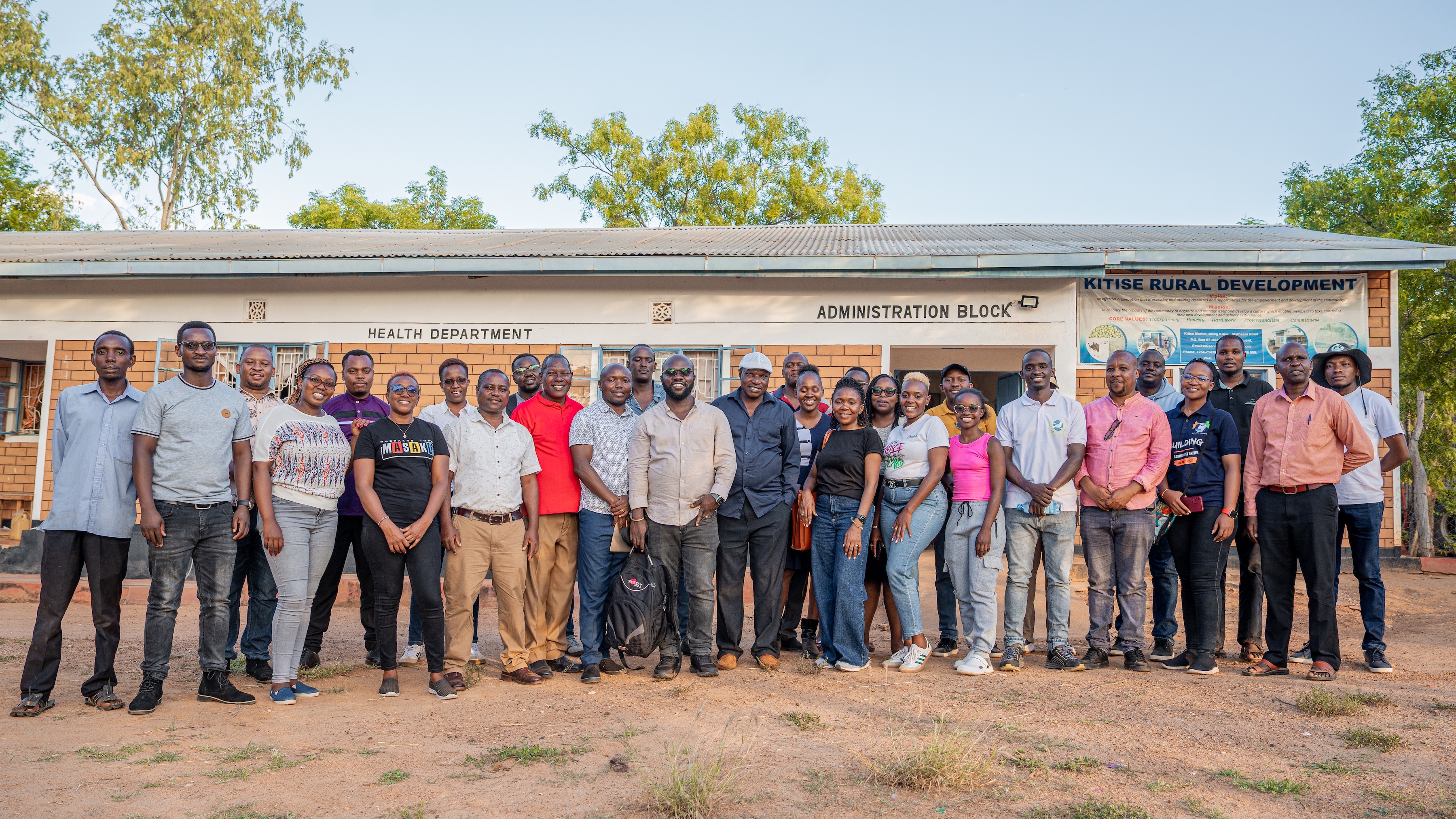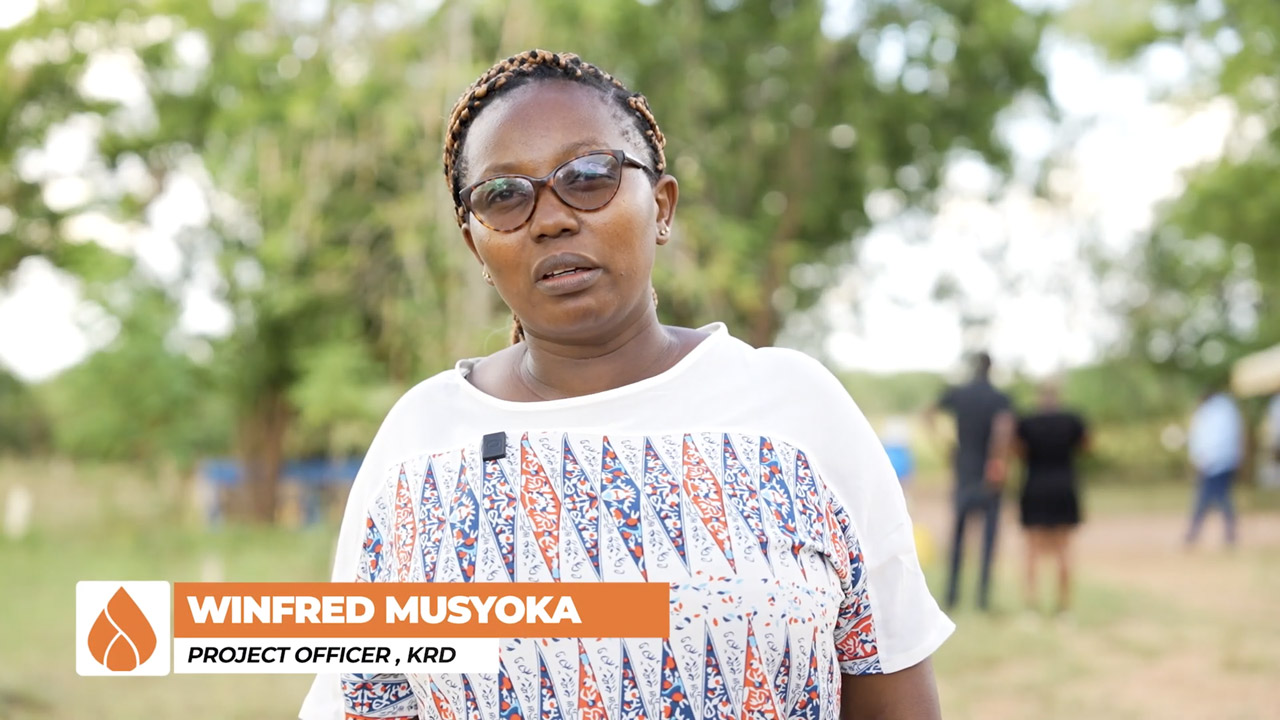Thanks to Firelight’s seven community-based partners, youth are overcoming challenges and creating new economic pathways for themselves and their peers

As the morning sun rises across Makueni, Machakos, and Kajiado counties, it illuminates some strikingly similar challenges. In all of these communities, young people face unemployment and underemployment, substance abuse, climate uncertainty, and severely limited opportunities.
Yet in seven distinct communities, seven community-based organizations (CBOs) have crafted different paths toward the same goal of promoting resiliency and belonging for their youth. The initiative, which is being supported and funded in a partnership between Firelight Foundation and Imaginable Futures, works because it is locally led.
Among the communities in Makueni, Kitise Rural Development CBO’s mentorship programs have not only helped young people overcome challenges such as drug abuse and early pregnancies but have created economic pathways for them. One of the youth groups they support, Syumile Elites, has a savings fund that helps finance member businesses (see separate story) and a reforestation project to address climate change.
Meanwhile, Jumuisha Initiative is taking a different approach – partnering directly with the county government systems to train youth in climate-smart agriculture and connect them to existing opportunities like the government’s Youth Enterprise Fund.
Travel to Kajiado county and you will find the Malkia Initiative Foundation building comprehensive youth databases and tailoring skill development to individual goals rather than a prescribed and rigid curriculum. Their computer training, beading workshops, and entrepreneurship programmes respond to what the young people themselves have identified as priorities. What seems like an obvious concept is surprisingly rare. Often priorities are set by government, by foreign development workers or by strategies that have only ever been tested in theory.
Nearby, Nareto Latia Indigenous People CBO is working to bridge traditional knowledge with modern opportunities. They combine indigenous climate adaptation practices with digital literacy training. Oldonyo Orok Youth CBO, operating in Namanga near the Tanzanian border, addresses dual challenges facing their community. Since traditional pastoralism is no longer a viable source of livelihood due to reduced grazing lands, they sponsored 20 youth to complete vocational training at Maasai National Polytechnic in 2023 and provided starter kits that launched their careers in 2024. Simultaneously, they have tackled a deadly crisis of youth crossing into Tanzania for cheap alcohol and returning intoxicated on motorcycles.
"It was rare to go even two months without burying someone who died on that road," shares Kenneth Karuko, Oldonyo Orok’s founder. Through targeted football tournaments that serve as platforms for alcohol awareness, road fatalities have significantly decreased over the past two years, while their tree nurseries generate sustainable income for the young people.
In Machakos county, Youth for Sustainable Development (YSD) has formalized partnerships with education institutions, community-based organizations and five government ministries including the Ministry of Youth, ensuring their mentorship programs are directly linked to employment opportunities and services. Another youth-led group, Jiwakilishe CBO, has invested in infrastructure. They are currently constructing a youth resource centre that will act as a safe space for peer learning and will be equipped with interactive games and training facilities to engage both young men and women. Their Mutituni Green Fest project transforms environmental action into community celebration, drawing participation across different age groups and sectors.
What emerges from these seven CBOs is not a one-size-fits-all model, but evidence that communities know best how to solve their own unique challenges. Firelight Foundation's role has not been prescriptive. It has been supportive, allowing each organization to develop approaches that build on their unique cultural contexts, geographic realities, and community priorities.
The results speak volumes. There has been increased school attendance among girls, shifting mindsets around child marriages, decreased substance abuse rates, thriving micro-enterprises and restored environments. Beyond these outcomes, the CBOs are building sustainable systems for long-term impact. Malkia Initiative, for instance, is developing a resource bank and evidence dashboard specific to Kajiado County to reduce dependency on external data sources like the Kenya Demographic and Health Survey or large organizations like UNICEF.
As Jedidah Lemaron, executive director of Malkia Initiative, puts it, "local communities need local evidence to make informed decisions. We need to understand that girls and youth do not exist in a vacuum but within complex ecosystems to implement more effective solutions."
Through their Resourcing for Her program, Malkia is renovating a school and building a new dormitory in Olgulului, to make sure girls do not have to walk kilometres to school and to protect them from harmful practices such as forced or child marriages. This will also allow them to focus on their education.
Significantly, these communities report strengthened social cohesion and increased youth participation in the decision-making processes. And they underline an essential tenet of adaptive programming: that lasting change does not come from external templates – it comes from communities having the agency to design their own solutions. Supporting diverse strategies rather than mandating uniform approaches leads to trust-based development outcomes that are ultimately more effective, culturally appropriate and sustainable.
